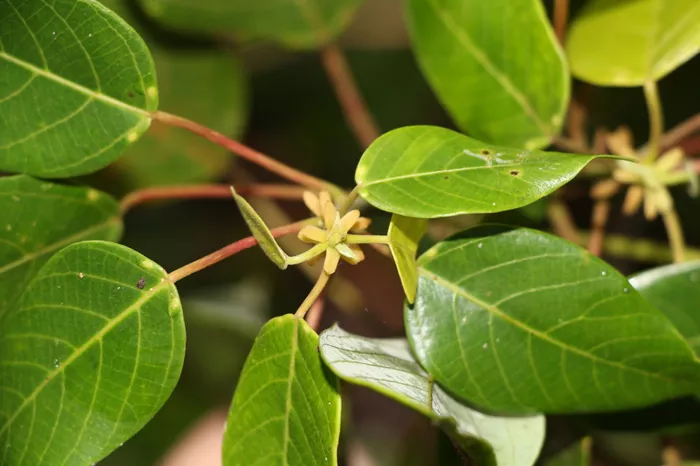Researchers from Mulawarman University in Samarinda, along with the Indonesian Nature Conservation Foundation (YKAN), announced a significant discovery on Sunday. They found a native plant that shows strong potential for treating cancer and diabetes.
The plant, Macaranga conifera, known locally as Sange-sange or Sepu, thrives in tropical forests. Rich in antioxidants, it may help fight cancer cells and could also be a potential treatment for diabetes.
Macaranga conifera is one of the many plants consumed by orangutans. The discovery was made during a broader study of the types of plants orangutans eat.
“We were studying various plants to see if they offer extra nutrition or have medicinal properties,” said Irawan Wijaya Kusuma, Dean of the Faculty of Forestry at Mulawarman University. “Since orangutans share many similarities with humans, we looked at the compounds in the plants they consume.”
The team initially examined 120 plant species, later narrowing it down to 60. Among these, Macaranga conifera stood out for its beneficial properties. The plant has even been patented for use in beauty products, such as acne treatments and anti-aging serums.
“We focused on compounds similar to those in existing medicines. Macaranga conifera has high antioxidant properties,” Irawan explained.
The research team, in collaboration with Kyushu University in Japan, tested extracts from the plant on five types of cancer cells: liver (HepG2), colon (HCT-116), neuroblastoma (SY-Sy5y), breast (MCF-7), and cervical (HeLa). These results could pave the way for new medical breakthroughs. However, more studies and approval from Indonesia’s Food and Drug Supervisory Agency (BPOM) are necessary before Macaranga conifera can be developed into safe medicine or herbal products.
Apart from its medicinal value, Macaranga conifera plays an important role in the ecosystem. It is a key food source for orangutans in the Wehea Protected Forest, a region rich in biodiversity and rare wildlife. The plant grows in open areas or newly cleared forests, making it easy to find.
Arif Rifki, an endangered species conservation expert at YKAN, highlighted that Macaranga conifera is a pioneer plant found in areas like riverbanks or deforested zones.
“This plant is abundant and easy to find, so humans and orangutans do not compete for it,” said Rifki. “It grows naturally in open environments, making it a sustainable resource.”
This discovery not only offers hope for medical advancements but also underscores the importance of preserving habitats that are vital to both wildlife and human health.


